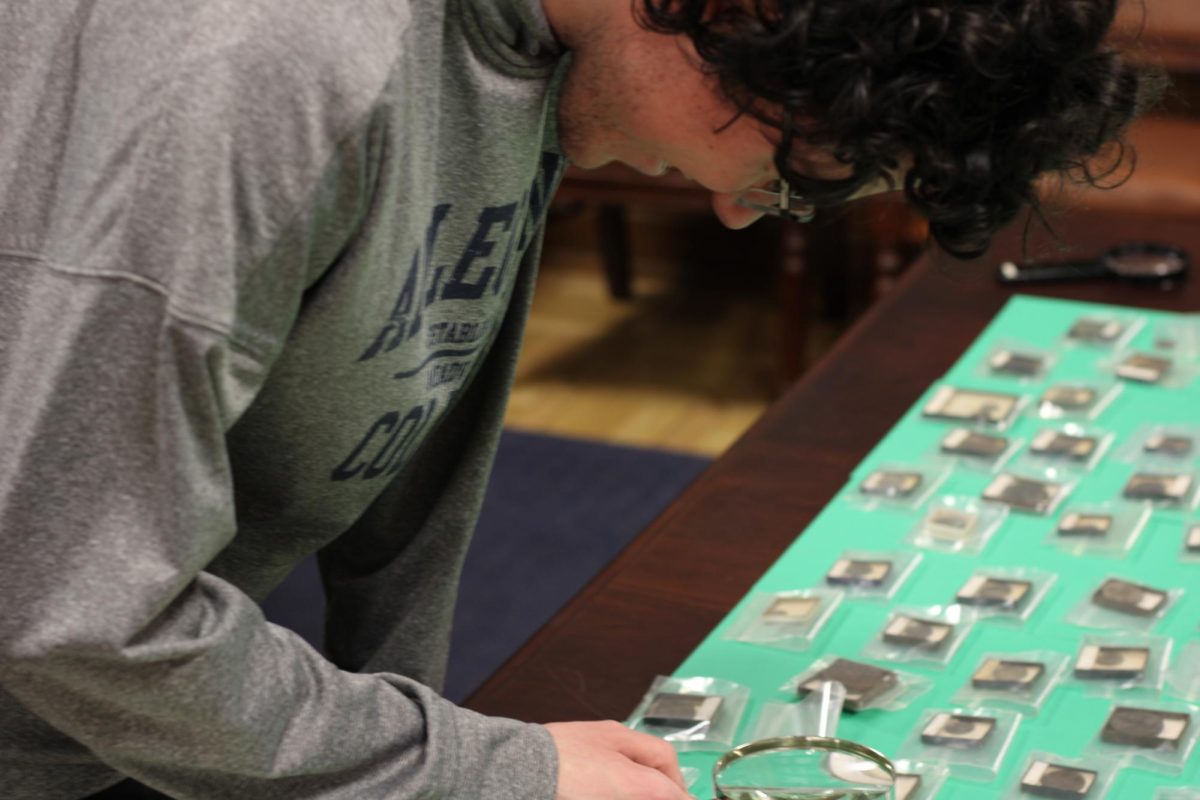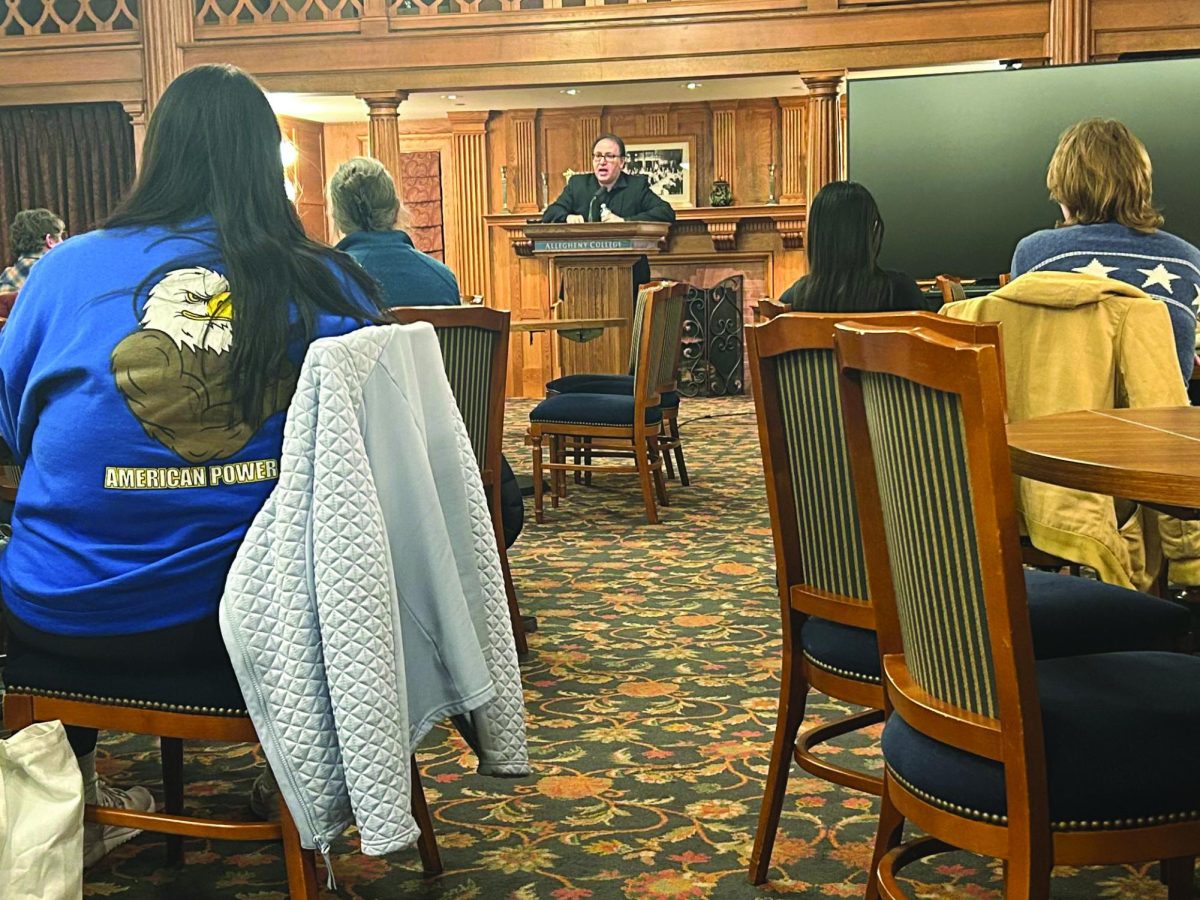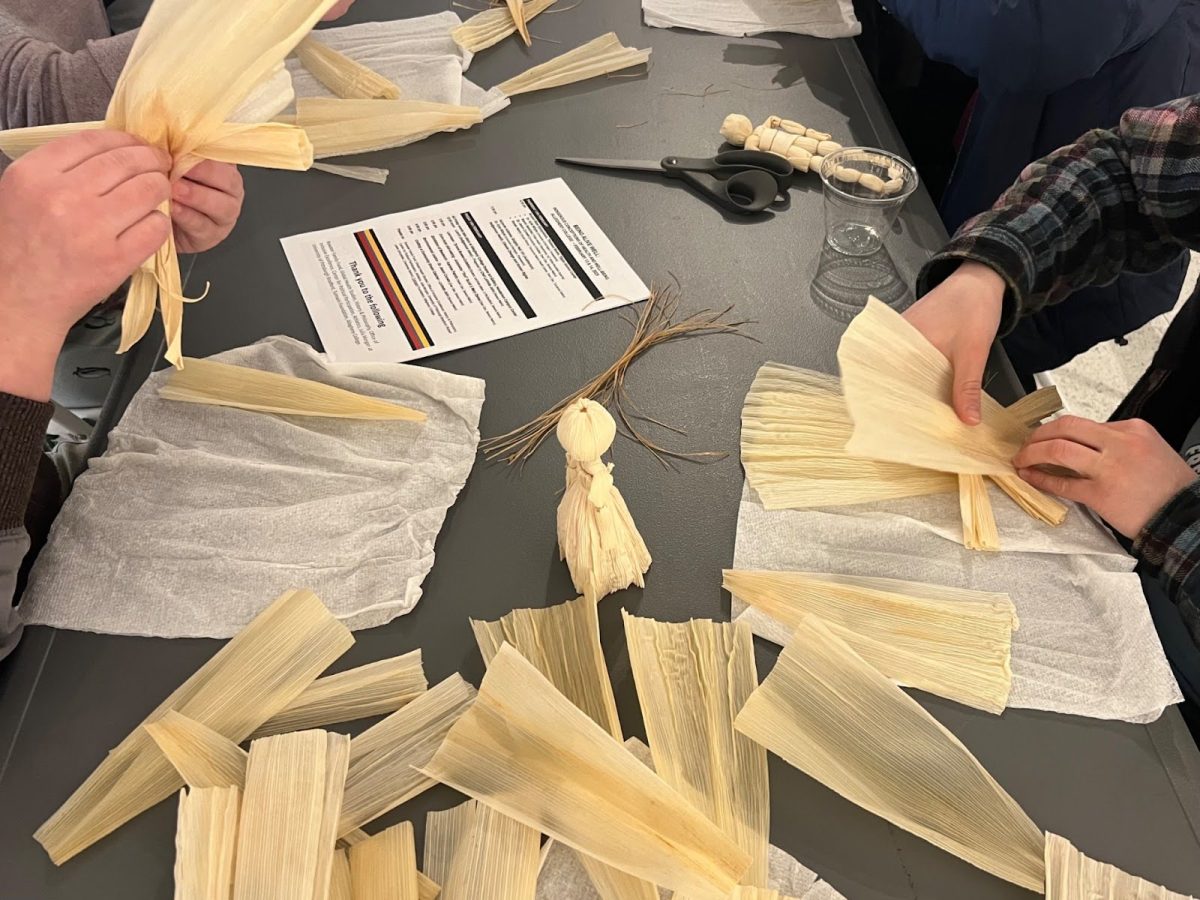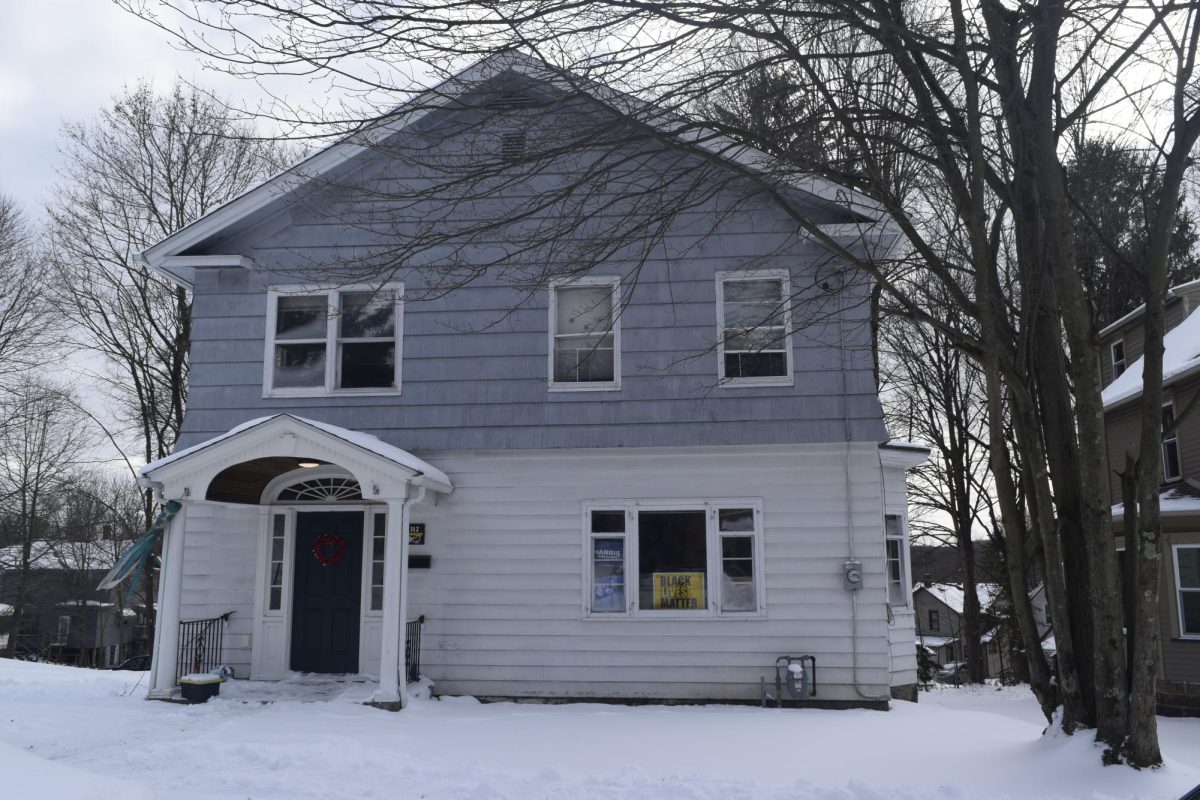On the icy morning of Saturday, Feb. 1st, a number of Meadville residents and Allegheny College community members gathered at the Crawford County Historical Society for a talk given by the Rev. Sarah Roncolato, ’80. The talk, titled “Re-Igniting the Past,” focused on the story of Elias Allen, an African-American Meadville citizen who in 1880 petitioned to enroll his children into a school that at the time allowed only white students.
The petition challenged an 1854 law and a Crawford County judge soon found the law unconstitutional. On July 4, 1881, the state Legislature amended the law to forbid segregation in Pennsylvania schools. Roncolato spoke about investigating the story of Allen, along with what inspired her to share this story with the greater community.
“I got interested in the desegregation case of 1880 last year,” Roncolato said. “I read a piece in the Meadville Tribune that talked about the 70th anniversary of Brown v. Board of Education. It reminded me of the sign that I had read in front of Second District School.”
Roncolato said she never planned on the project taking as long as it did to research. As she gathered more information about the individuals involved, such as the judge and lawyers involved with the case, a more concrete narrative came together about how the pre-Civil War era law was overturned.
Tom Yoset, a former lawyer and Meadville archivist, worked to find and transcribe handwritten documents from the case, as well as accessing tax assessment records that gave a glimpse into Allen’s livelihood. This introduced them to another figure: Judge Pearson Church, class of 1856, who ruled in favor of Allen but lost his re-election bid in 1887 as a result.
“It has been the most interesting project in terms of research,” Roncolato said. “You had to have Elias’s actions that confronted this school and the unjust law. You had to have Judge Pearson Church who was, as I said on Saturday, a child and a man of privilege. That part has been so important in looking at how unjust laws are changed. We need people in different places in life to bring about change.”
A number of individuals also helped with the research, including Caitlyn Thompkins, ’25, who was an intern at the Crawford County Historical Society last fall. Her work began with an article by Meadville Tribune contributor and historian Anne Stewart as a jumping off point, which then led to other articles that detailed the case and its impact on the Meadville community at the time.
Thompkins spoke about Meadville’s history with its African-American citizens, noting the opposition to Allen’s mission to desegregate the local school.
“There were some people who were very against schools being desegregated. In some of the articles I read, people were saying some pretty awful things towards Meadville’s Black population and Black people in general, which was difficult to deal with,” Thompkins said. “Honestly, I don’t know why I was shocked, but I was.”
The talk comes at a significant time, as it was given to kick off Black History Month on Feb. 1. It also comes as a number of politicians, most notably recently elected President Donald Trump and other powerful political officials, have publicly attacked diversity, equity and inclusion measures in the federal government. On Jan. 20, less than two weeks before Roncolato presented the findings, Trump signed an executive order to end all Federal DEI funding and programs. Associate Professor of History Alyssa Ribeiro, who also coordinates the Black studies minor, spoke to the importance of learning national and local history in light of these actions.
“It has long been a struggle in the United States to integrate histories of groups that have been more marginalized, and Black history is a huge part of that,” Ribiero said. “I think that, under the attacks on DEI, et cetera, there is a danger of losing some of that inclusivity we have gained in our curriculum broadly speaking. I was pretty heartened to see a strong turnout of local folks at the historical society, on a Saturday morning, at the very moment that this stuff is getting challenged through federal actions.”
Roncolato spoke about the importance of telling the stories of Black History.
“I was surprised to be given the opportunity to tell a story that needed to be told again and again and retold in this new day,” Roncolato said. “I’ve been thinking about the new attacks lately about Black History Month. I would say if we’re not going to have Black History Month, then bring it on. Let’s do it all year because that’s where it belongs.”
Categories:
Meadville history reignited by Allegheny reverend
Story continues below advertisement
1
More to Discover
About the Contributor

Paige Kageni, Staff Writer
Paige Kageni is a sophomore from the Central Pennsylvania area. She is planning to major in English and minor in Communications and Women’s, Gender, and Sexuality Studies. This is her second year as a staff writer for The Campus. In her spare time, she enjoys playing guitar, crocheting, and going on long walks.






